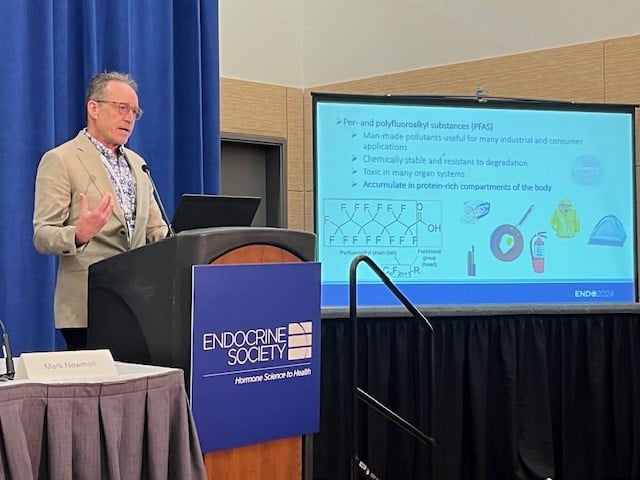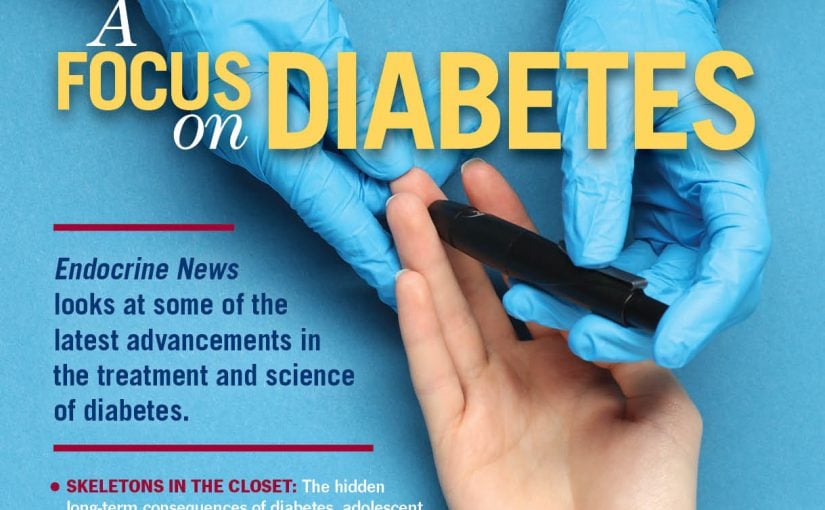On June 17, the Endocrine Society joined delegations from dozens of countries gathered in Geneva, Switzerland, for the third session of an ad hoc open-ended working group (OEWG) convened under the United Nations Environment Programme (UNEP) to develop proposals to establish a new science policy panel charged with helping to inform governments, companies, farmers and a broad array of other stakeholders to better manage chemicals, reduce waste and prevent pollution.

Endocrine Society member Scott Belcher, PhD, has represented the Society throughout the OEWG process to ensure that endocrine scientists with expertise in endocrine-disrupting chemicals (EDCs) have a voice in the establishment of the panel, and that as part of its work the panel will help governments around the world address and minimize harms due to exposure to EDCs. At the meeting in Geneva, Belcher shared the Society’s perspectives about establishing effective policies to address conflicts of interest that may arise as the panel conducts its work, and why information on human health hazards should be made transparently available to the public. The panel will be an independent intergovernmental body and could be established and begin its work as early as 2025. We look forward to the final proposal from the OEWG and working with the SPP upon its establishment.
Meanwhile, the European elections held June 6 – 9 will have major implications for legislation to address exposures to EDCs proposed as part of the EU Green Deal. While far-right parties made significant gains at the expense of the Greens and other left leaning groups, pro-Europe, pro-democracy groups have maintained their overall majority of Parliament. Three core pro-EU groups will form the basis of support for Ursula Von Der Leyen to continue as Commission President, and this center-right majority will shape key policy decisions.
While we do not expect this majority to be in favor of ambitious regulations on EDCs, which might cause a “burden” on the chemical industry, our messages and approach will remain focused on educating policymakers.
While we do not expect this majority to be in favor of ambitious regulations on EDCs, which might cause a “burden” on the chemical industry, our messages and approach will remain focused on educating policymakers, especially new Members of the European Parliament on the Environment Committee, about the importance of following through on work on EDCs initiated in the previous term. We also look forward to engaging with the new commissioners for the Environment, Health, and others following their approval by Parliament, to discuss our priorities and opportunities during their term.

